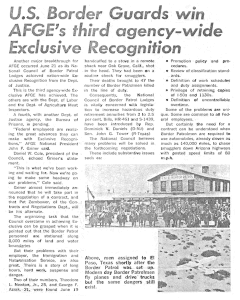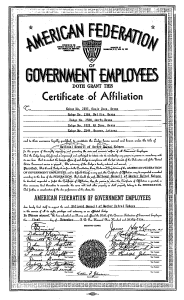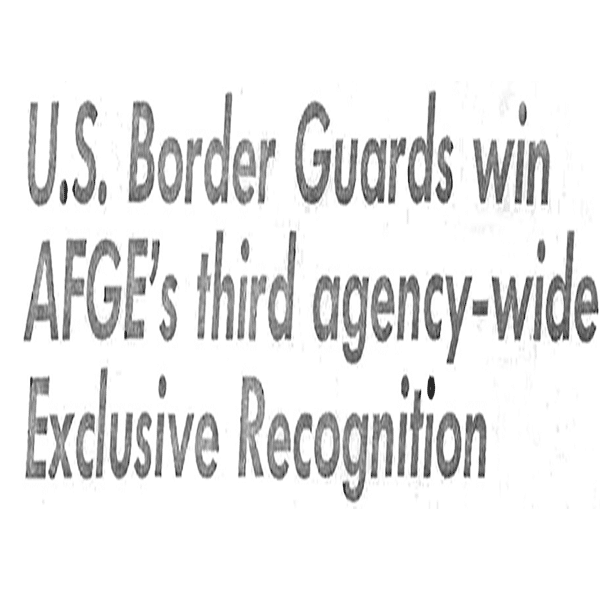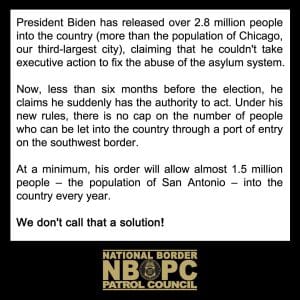On June 21, 1967, the National Council of Border Patrol Lodges was granted exclusive recognition by the Department of Justice (DOJ). Our organization would later become known as the National Border Patrol Council (NBPC) and recognized as the exclusive representative for all nonprofessional employees assigned to Border Patrol sectors throughout the country.
Prior to this significant date, several Border Patrol Lodges had formed in various Border Patrol sectors. On November 1, 1965, those Lodges affliated with AFGE to receive its support. However, exclusive recognition by the DOJ provided the necessary authority then and in the future when the Federal Service Labor-Management Relations Statute (The Statute) was passed.
As noted in the article that was published in 1967, just days before, Border Patrol Inspectors Theodore L. Newton and George F. Azrak were overpowered by drug smugglers while assigned to a remote checkpoint in Oak Grove, California. Both were taken to an abandoned cabin near Anza, California where they were brutally murdered. A massive manhunt led to the arrest of four suspects within a month of the tragic event. All four suspects ultimately pled guilty and served various sentences based on their involvement with the senseless murders of the inspectors.
Although Border Patrol officials frequently cite the tragic case of Border Patrol Inspectors Newton and Azrak, NBPC representatives have had to remind those officials of this case when they have understaffed operations. Sadly, The Statute gives management officials the right to determine staffing and operate inefficiently, which has made it difficult at times when NBPC representatives are forced to address understaffing within the Border Patrol and the respective operations.





